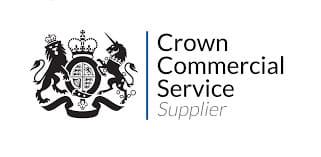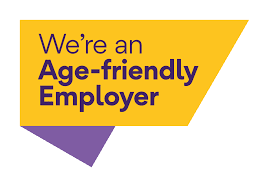A report on HR Round Table 4 – The Essential Skills
Reflecting on the previous conversations with our HR community, one emerging theme has been effective communications. We put the question to our participants: What skills do you consider essential, post Covid-19? We also asked about effective training experiences. We were joined by BodySwaps* Founder Christophe Mallet to offer a fresh perspective on training
* Bodyswaps is a complete soft skill learning solution that empowers learners to practice difficult conversations through empathy and self-reflection. Combining behavioural science, data and immersive technologies, Bodyswaps boosts the effectiveness of your training programmes with scalable contextual practice.
Here are the key themes discussed:
“It’s important to toughen up.” (Resilience)
Discussing whether it is an individual’s personal responsibility to build resilience and what organisations might do to help. There is disparity between employees now working remotely and the range of pressures they face. We agreed that it is essential that we focus on individual needs. The key to understanding is building a safe environment to share concerns and challenges. From this conversation we recognised that another essential skill is the ability to look beyond the face value of a situation. This sparked some comments about the lack of skills within some HR teams; priorities and time to work on such an individual level.
“Companies need to create safety even for remote working and leaders need high levels of emotional intelligence”. (High emotional intelligence)
The conversation moved to asking whether the CEO of an organisation is truly aware of the challenges people are facing. With HR are carrying most of the responsibility for building an environment where all people can flourish, can CEOs meet these expectations? One of our leaders told us that her experience is that teams are demonstrating great deals of creativity to lead remotely and being equipped with high EQ is essential.
We should share when we are finding things challenging…
So how many of our leaders had experience of developing the EQ and sensitivity? The Russam Team have completed Mental Health First Aid training and spoke about how helpful this was; it created a much greater understanding of the challenges caused by depression as an example. We heard about training for managers on leading hybrid or virtual teams and the challenge of managing teams when half are in and half are out of the office. The strength to show vulnerability emerged again, in relation to how individuals respond to change, and there is great value in the leadership team sharing their own observations on how they personally manage change and disruption.
Trauma – career trauma and a personal reaction to an event and a need for coaching. (Coaching skills)
There is no doubt that challenging and difficult subjects for conversations are on the rise. One example is how you manage a team remotely when you are aware of a case of alcohol abuse. Coaching can help.
We recognised that performance can be impacted by many external factors. For some, the events sparked by George Floyd or Sarah Everard brought up many emotions. Marginalized groups are recognising that they need to their voices to be heard. There is a rise in the number of people suffering trauma, career trauma, sexism. The ability to understand how to support and help people suffering is a further essential skill. Giving management teams Coaching skills is recognised as valuable.
Coaching effectively takes time and investment so we considered what tools are available to help. Christophe spoke about how VR (Virtual Reality) is being used by companies for training. He told us that he speaks to lots of leaders to understand what must happen to make companies invest in training. Where are the pain points? What becomes so painful that an organisation has no choice to do something about it? Quoting BLM and Inclusion initiatives as an example. This is a whole different story. The level of accountability has changed and its coming from the bottom up. Everyone in the organisation is asking what we are doing about inclusion and diversity – it can no longer be a box ticking exercise. It became clear that training budgets are not always forthcoming until a situation becomes public and unavoidable.
So, training budgets are not always easy to find when the ROI question is not clear. We asked our Rewards expert about his observations from his engagement with corporate clients. He told us that most of them are focusing on the whole thing (Covid-19 impact) being finished – ideas of how to help people and revolutionizing workforces are not a priority. They are not investing in initiatives as they do not believe they will be needed, even though many have been caught short. We do not need to look far to see how stressed HR teams are. His clients are focusing on driving sales as soon they reach 90% normality, focusing on making salespeople do well. Saying all this, there will be a focus on well-being and a place for it in rewards, but it is not clear whether there will be investment in tools such as Bodyswaps. Do most people have their fingers crossed hoping that it will all return to normal, and we can forget his ever happened?
The idea of ‘getting back to normal’.
We acknowledged that the pandemic has been tragic on many fronts but also looked to the silver linings. The BLM movement and other issues that have been percolating and come to our attention over the last 12 months. So, it is incumbent on all organisations not to go back to normal and use this as an opportunity to fundamentally change.
Fundamentally change, yes, but it was pointed out that what is incumbent is to survive and thrive. These companies must go back to profitability and create jobs. We heard that the leaders and their teams have the same motivations and priorities, and the divide may not be as big as we might think. Organisations in different sectors will return at different stages and cash flows are tight for many and this will impact on training budgets.
Wellbeing important but focus is on thriving and growth – have we missed the point?
Jason shared that he is witnessing a range of different responses and strategies from within his client base depending on sector. The last year has meant that he has learned more than he ever did from his MBA, being faced with challenge and working in a very hands-on way. He is seeing offices re-open and a trickle of returners but can see that for some remote working is fine and here to stay.
The Summary: Essential Skills
As we reflected on our conversation, we can say these skills are most important: emotional intelligence, empathy and showing personal vulnerability. Also:
- The use of technology.
- We all should take opportunities for upskilling.
- Tools on how to manage a semi-remote workforce for productivity and well-being.
- Listening strategies are very important.
- Embracing the challenge of leading in areas outside of your skills set and grabbing the opportunity is a healthy mindset.
- Automation is not slowing down; the pandemic has moved digital innovation forward 10 years. This means we must reskill the workforce.
- We need HR and the need for learning and development has never been greater for technology and soft skills. Companies need to respond quickly if they do not want to collapse two or three years down the line.
- People want career development and learning. This is absolutely vital.
- We need great talent management strategies to take our talent to the next level.
Thank you
Christophe Mallet, Tracy Evans, KK Harris, Skip Riddle, Alan Gibbons, Patricia Williamson, John Wallace, Ilham Mohammed and the Russam Team.

Contact us
Call us on 07930 356305 or email HQ@russam.co.uk








